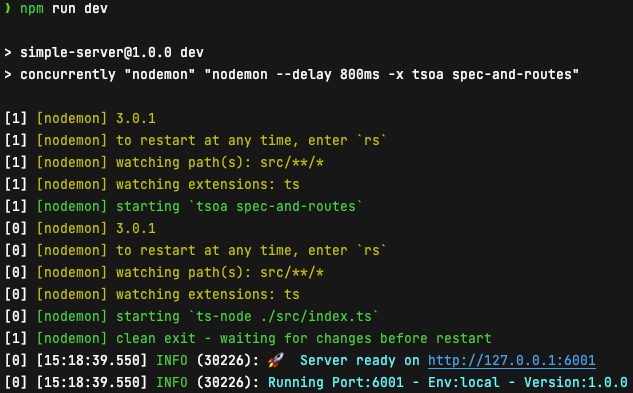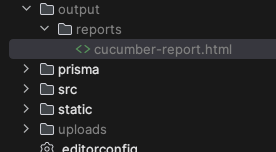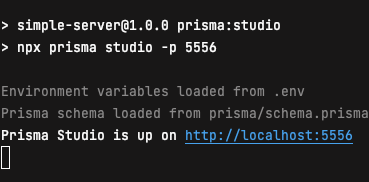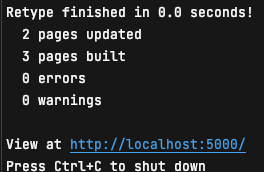This is a simple boilerplate project to demo some production ready principals and theories
To get the project up and running you will need a few things to get you going
- Node/Npm - We recommend using nvm to allow easy version switching
- Docker - In particular docker desktop
- Globals - There are a few global npm packages needed:
npm i -g artillery retype
The following instructions will help get the project up and running locally
One of the first things you will need to do is run the install command to install all dependencies
npm installTo get the project up and running locally you will first have to spin up the database into a docker container.
Copy the .env.posgres.example file and rename it to just .env.postgress the file contains the details for the user and database that will be created when the server spins up
Note: Ports - The compose filehas the ports set to a specific none standard port as this was an easy way to avoid conflicts with other postgres servers that may be running.
From the root of the project
docker-compose up -dYou should then be able to see the database is running in docker desktop (or similar)

Once the database is running you can apply the migration to set up the local database
npx prisma migrate devThis will make sure the database is up and running with the correct tables and schema.
From here you will be able to start the server
npm run devYou should see a successful message in the console

From here you will be able to run the e2e tests via cucumber to see if things are all doing what they are expected to.
npm run test:cucumberThere will be a summarised report in the console as well as a html file with a more detailed report. This can be found in the output folder at the root of the project. Simply open it with Chrome or another browser
To view the records that have been generated during the tests you can use the prisma studio.
npm run prisma:studio
The readme file contains some basic info for getting the project up and running but there are more in-depth documents for individual sections
The api uses tsoa to auto generate swagger documentation for the api. When the server is up and running this is available by visiting http://localhost:6001/docs
As there are a number of key areas that we wanted to write more information about we decided to use retype to produce some more in-depth documentation covering areas such as testing, resources, tech choices etc.
To get this up and running locally there needs to be a global install then running the command.
npm i -g retypeapp
retype startYou should get a message similar to:
The MD files used to generate these docs are located in the /docs folder the meta data is seperated into yml files



